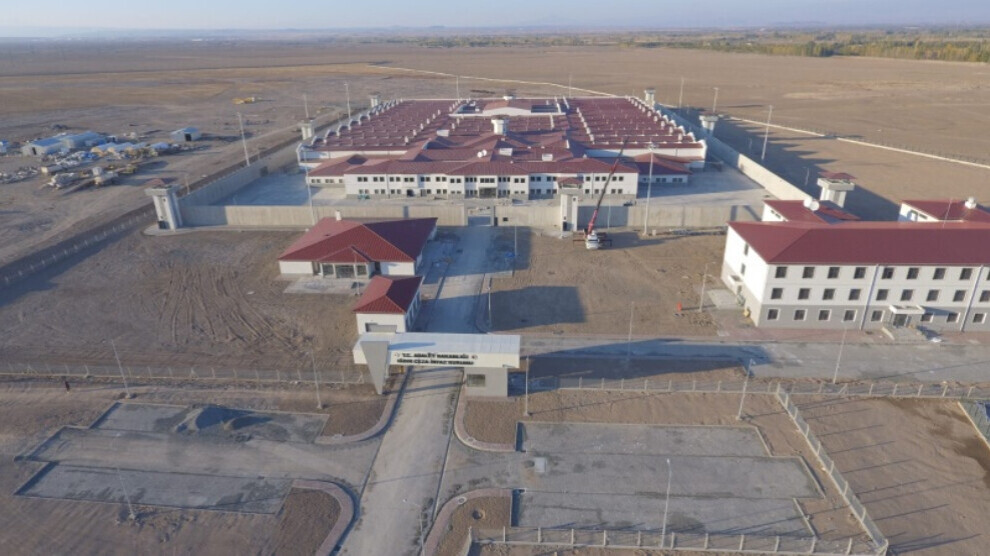S Type prisons multiply isolation and pressure
HDP Iğdır Deputy Habip Eksik said that with S Type prisons, the goal of isolation, de-identification, as well as the pressure on both body and memory has been multiplied.
HDP Iğdır Deputy Habip Eksik said that with S Type prisons, the goal of isolation, de-identification, as well as the pressure on both body and memory has been multiplied.

Three S-Type prisons were added to Turkish jails, in Antalya, Bodrum and Iğdır. In addition, another two-unit S Type prison is being built in Çarşamba-Samsun.
Speaking to ANF on the subject, Peoples' Democratic Party (HDP) Iğdır Deputy Habip Eksik said that the goal of isolating people, depriving them of identity as well as the pressure on both body and memory has been multiplied by these prisons.
Reminding that physical and social isolation causes irreparable physical, mental and social damage to people, Eksik said that the prisoners in Iğdır S Type were kept in single cells even though they did not receive aggravated prison sentences or disciplinary punishments.
Eksik said: “Prisoners are not given newspapers on the grounds that they stay in isolation cells, they are not allowed to meet with their families or the visit time is arbitrarily shortened, and a standing count is imposed. In addition, prisoners who apply to go to the infirmary are either taken to the emergency room and given an injection or sent to the infirmary after three weeks, and the prescribed medicines are given within 2-3 weeks. Prisoners are prevented from participating in social activities. Prisoners are also unable to find an interlocutor to convey their problems to.”
Stating that the biggest problem is being placed in isolation cells, Eksik added: “Hogir Batu, who was detained in the Nusaybin Case, was transferred from Diyarbakir No. 1 High Security Closed Prison to Iğdır S Type Closed Prison, and was forcibly strip searched at the entrance of the prison. Because of his opposition, he was beaten and dragged to the ground. Batu was not given food for days. Likewise, Serkan Güneş, Rüken Yıldız, and Necdet Ayna stay in isolation cells. Prisoners do not have access to health care. 70-year-old Abdullah Ateş has many health problems, but he is not treated. We submitted proposals regarding this issue and tried to reach the interlocutors by phone.”